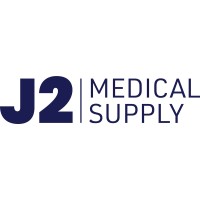Medical Suppliers Impact on Healthcare Industry
Medical Suppliers Impact on Healthcare Industry


In today’s healthcare industry, medical suppliers play a crucial role in providing the necessary medical equipment. Supplies to ensure optimal patient care. The best medical supplier is one that offers high-quality products, competitive pricing, exceptional customer service, and reliable delivery. In this blog, we will explore some of the top medical suppliers in the industry.
Medline Industries
Medline Industries is one of the largest medical suppliers in the world. With a vast selection of medical products ranging from gloves and gowns to surgical instruments and diagnostic equipment. The company’s focus on innovation and efficiency has helped it establish a reputation for providing high-quality products at competitive prices.
McKesson Medical-Surgical
McKesson Medical-Surgical is a leading medical supplier that provides a broad range of medical products. Services to healthcare providers across the United States. The company’s extensive product line includes everything from basic medical supplies to complex medical devices and equipment.
Henry Schein Medical
Henry Schein Medical is a subsidiary of Henry Schein, one of the world’s largest healthcare product and services providers. The company specializes in providing medical equipment and supplies to physician offices, ambulatory care centers, and other healthcare facilities.
Cardinal Health
Cardinal Health is a global healthcare services and medical supplier that offers a wide range of medical products. Services to healthcare providers and patients. The company’s products range from basic medical supplies to more advanced products such as surgical equipment and diagnostic tests.
Becton, Dickinson and Company (BD)
BD is a leading medical supplier that specializes in medical technologies, devices, and laboratory equipment. The company’s products are designed to help healthcare providers improve patient outcomes and reduce healthcare costs.
Medical suppliers play a critical role in the healthcare industry, providing the necessary medical equipment and supplies to ensure optimal patient care. The impact of medical suppliers on the healthcare industry is significant and can be seen in several ways:
Improved Patient Care
Medical suppliers provide a wide range of medical equipment and supplies, ranging from basic items. They are like bandages and syringes to more complex equipment like ventilators and imaging machines. These products are essential for diagnosing and treating patients, improving patient outcomes and overall health.
Cost-Effective Solutions
Medical suppliers offer cost-effective solutions that help healthcare organizations to reduce their expenses while providing high-quality care to patients. They offer bulk purchasing and rental options, as well as leasing programs that allow healthcare organizations to acquire the equipment and supplies they need without incurring significant upfront costs.
Innovation and Technology Advancements
Medical suppliers are at the forefront of innovation and technology advancements in the healthcare industry. They invest heavily in research and development to improve existing products Develop new ones that meet the changing needs of healthcare providers and patients. This has led to the development of new medical technologies that have revolutionized the way healthcare is delivered.
Enhanced Operational Efficiency
Medical suppliers help healthcare organizations to enhance their operational efficiency by providing timely delivery of equipment and supplies. They also provide training and support to healthcare providers to ensure that they are using the equipment and supplies effectively, minimizing waste and improving workflow.
Global Health Impact on Medical Suppliers
Medical suppliers have a global impact on healthcare, providing medical equipment and supplies to healthcare organizations and providers around the world. This has helped to improve healthcare outcomes in developing countries, where access to medical equipment and supplies is limited.
The impact of medical supply shortages has been felt across the healthcare industry, including hospitals, clinics, and other healthcare facilities. Frontline healthcare workers have been particularly affected by the shortages, putting their health and safety at risk as they care for patients with COVID-19.
The shortage of medical supplies has also had a significant impact on the global economy. Many businesses that rely on medical supplies, such as manufacturers of PPE and medical equipment, have been forced to shut down or reduce production due to supply chain disruptions.
Measures Taken to Address the Issue
To address the issue of medical supply shortages, governments and healthcare organizations have taken several measures, including:
Increased Production: Many countries have ramped up production of critical medical supplies, including PPE, ventilators, and diagnostic tests.
Re-Purposing Manufacturing Capabilities: Manufacturers have re-purposed their production facilities to produce essential medical supplies.
International Collaboration: Countries have collaborated to share resources and expertise to address the global shortage of medical supplies.
Strategic Stockpiling: Governments and healthcare organizations have established stockpiles of critical medical supplies to ensure that they are available when needed.
Efficient Supply Chain Management: Healthcare organizations have implemented efficient supply chain management practices to ensure that critical medical supplies are available where and when they are needed.
Social distancing measures have also led to increased feelings of isolation and loneliness, which can have negative impacts on mental health. The pandemic has also highlighted existing social and economic inequalities, with marginalized communities disproportionately affected by job losses, economic recession, and other impacts.
Global Response
The COVID-19 pandemic has highlighted the importance of global cooperation and collaboration in addressing public health crises. International organizations like the World Health Organization (WHO) have played a key role in coordinating responses and providing guidance to countries. However, the pandemic has also underscored the challenges of coordination and cooperation among nations, particularly in the context of vaccine distribution and access.
Vaccines and Mitigation
The development and deployment of COVID-19 vaccines have been a key tool in the fight against the pandemic. Multiple vaccines have been developed and authorized for use globally, and many countries are working to vaccinate their populations as quickly as possible. Vaccines have been shown to be highly effective in preventing severe illness and hospitalization, but breakthrough infections can still occur.
Alongside vaccination efforts, public health measures like social distancing, mask-wearing, and hand hygiene remain critical to slowing the spread of the virus. These measures are particularly important in areas with low vaccination rates or where new variants of the virus are circulating.
Challenges and Opportunities
The COVID-19 pandemic has highlighted both the challenges and opportunities in addressing public health crises. The pandemic has shown the importance of investing in public health infrastructure and preparedness, including research, surveillance, and healthcare capacity. It has also underscored the need for greater global cooperation and collaboration in addressing public health threats.
However, the pandemic has also exposed pre-existing inequalities and weaknesses in healthcare systems and social structures. The pandemic has disproportionately affected marginalized communities, highlighting the need for greater equity in healthcare access and outcomes. The pandemic has also led to increased economic disparities, with marginalized communities disproportionately affected by job losses and other economic impacts.
Conclusion
Choosing the best medical supplier is critical for healthcare organizations to ensure optimal patient care and operational efficiency. Medline Industries, McKesson Medical-Surgical, Henry Schein Medical, Cardinal Health, and BD are some of the top medical suppliers that offer high-quality products, exceptional customer service, and reliable delivery. However, it’s important to evaluate the specific needs and requirements of your healthcare organization and conduct thorough research before choosing a medical supplier.






